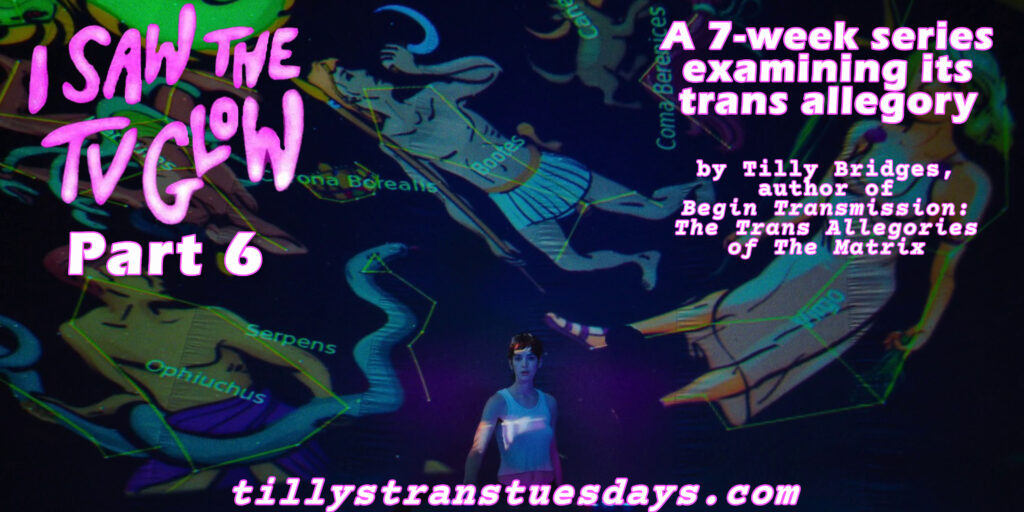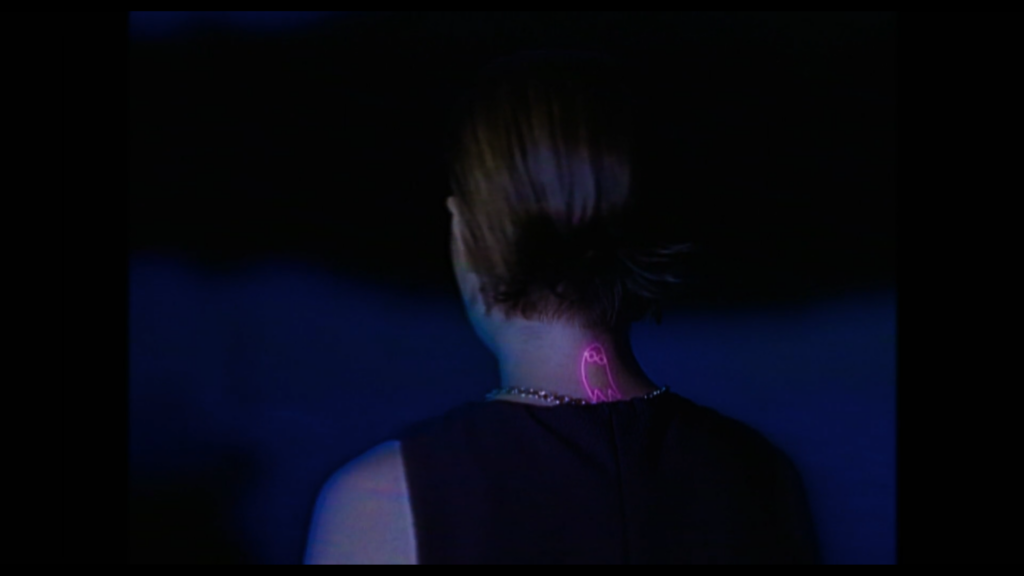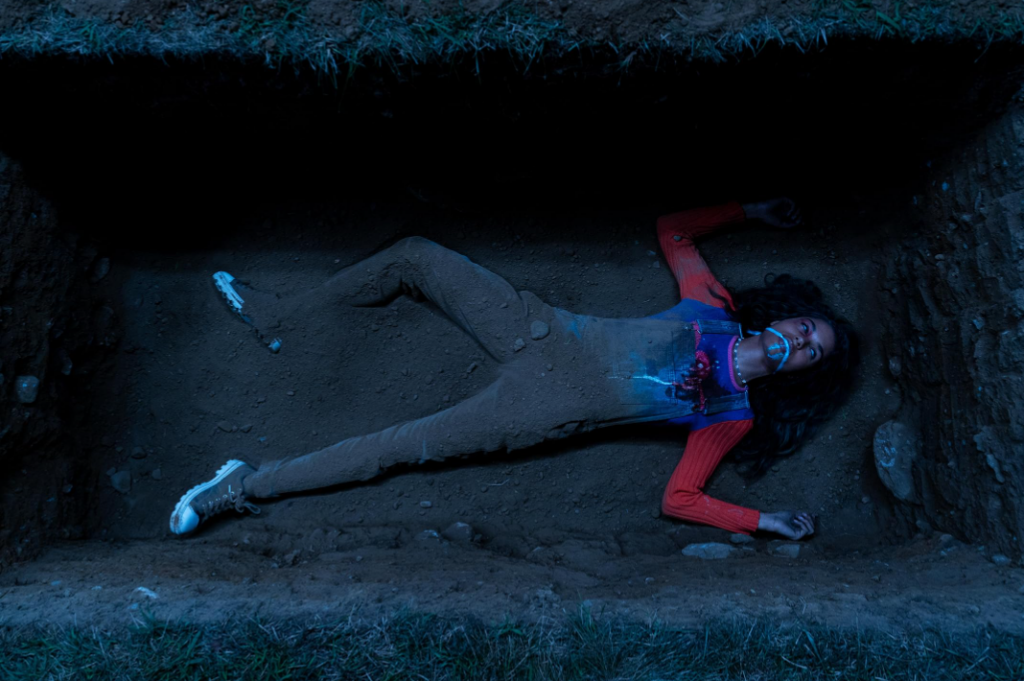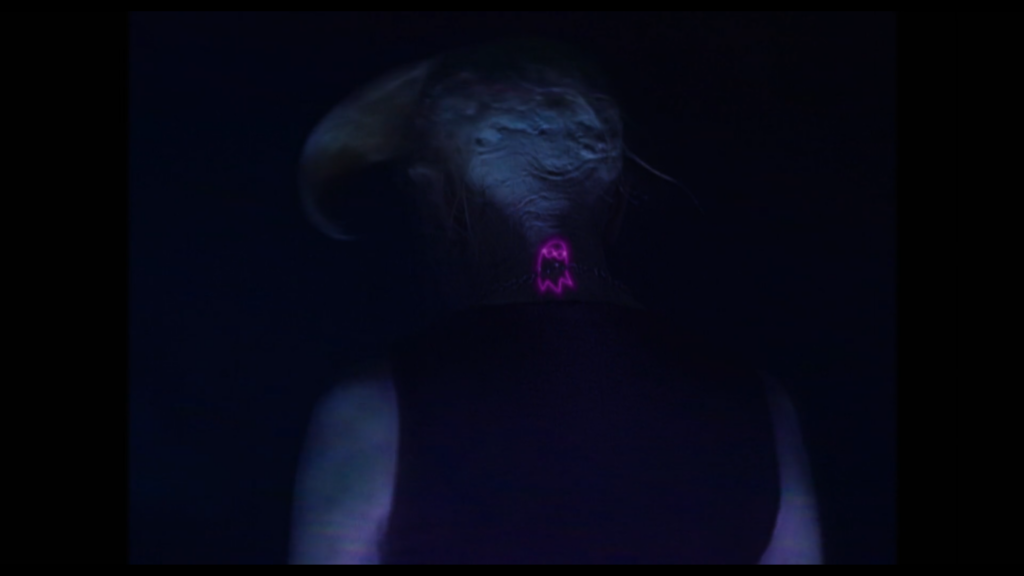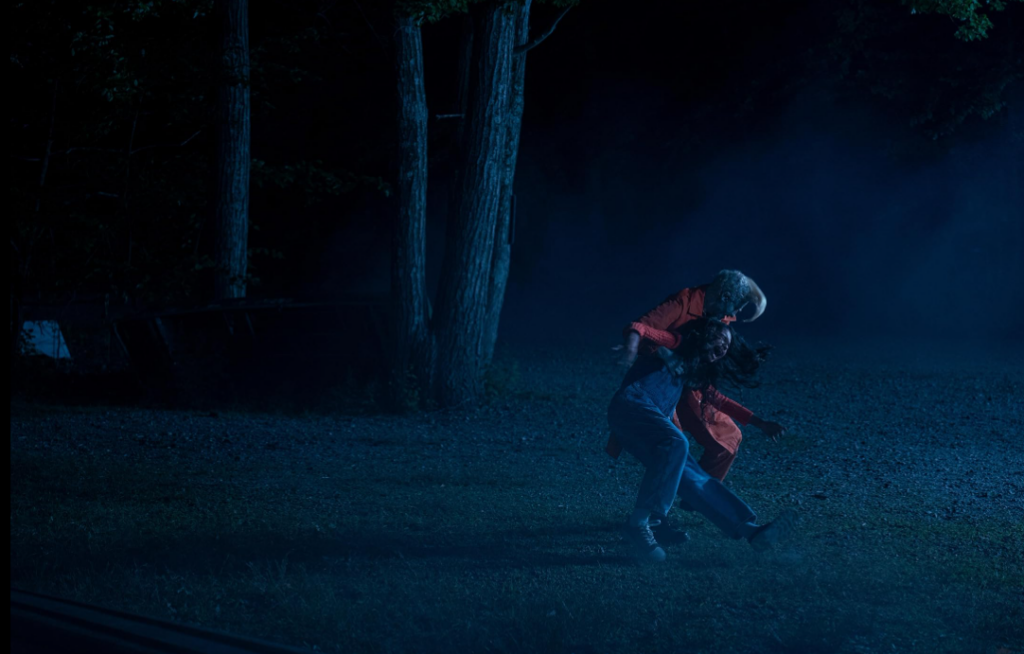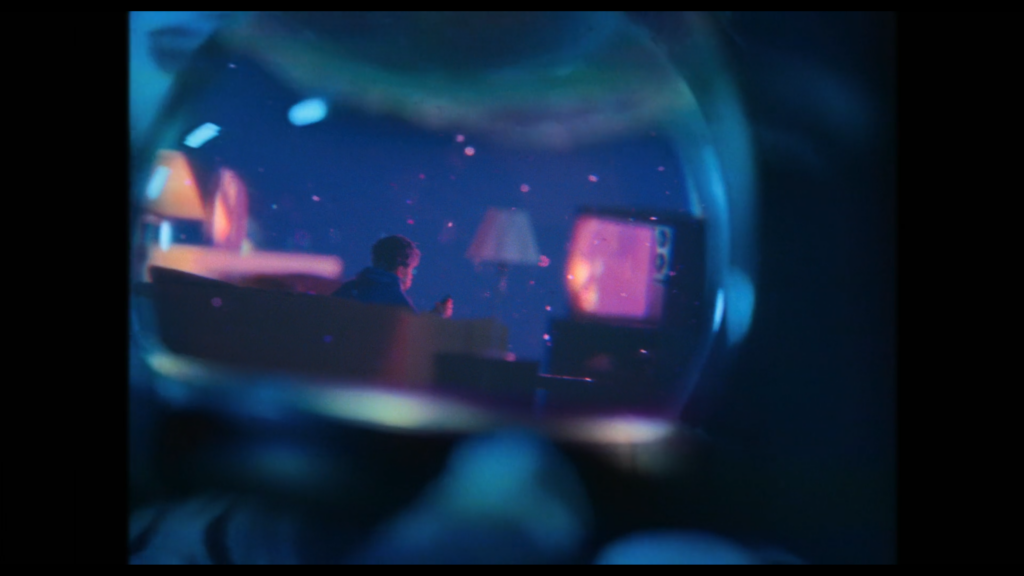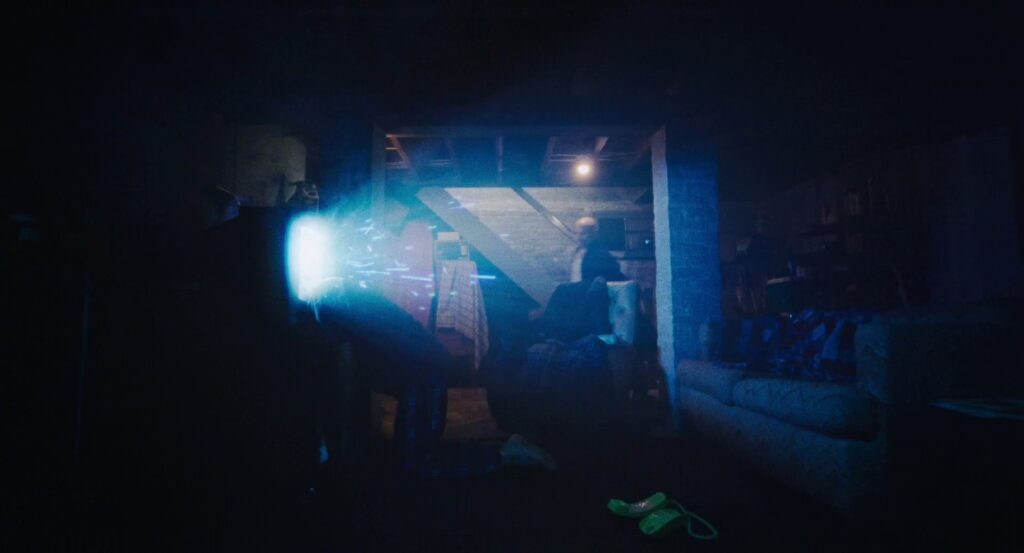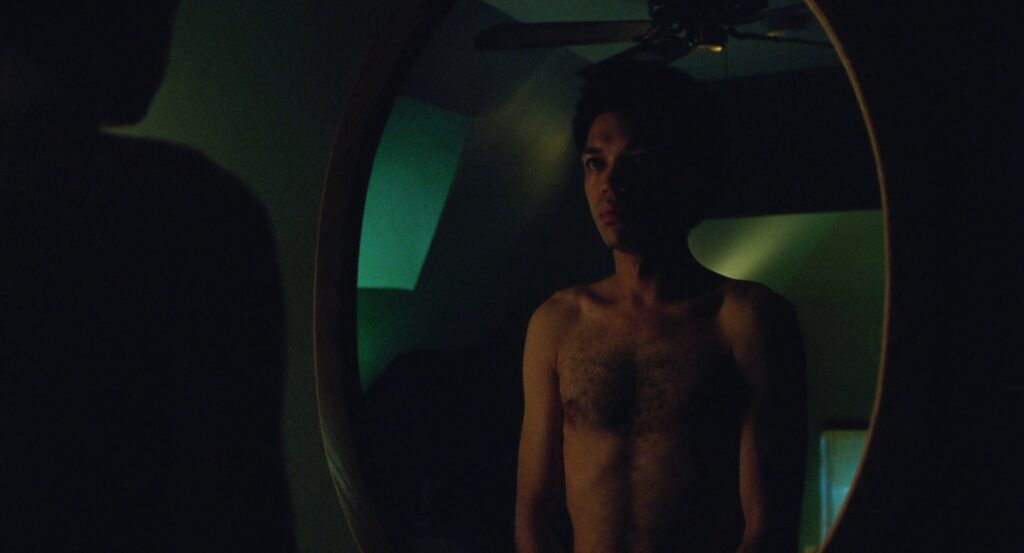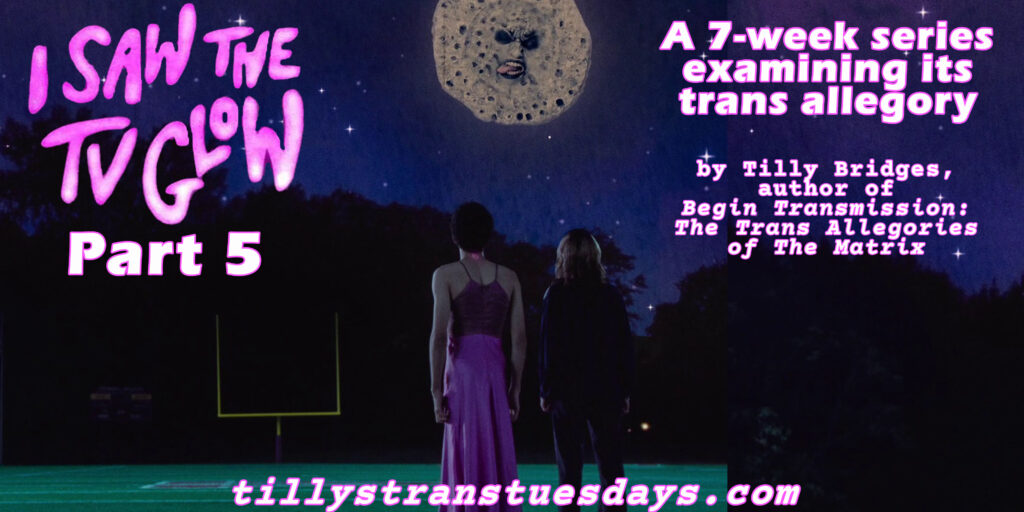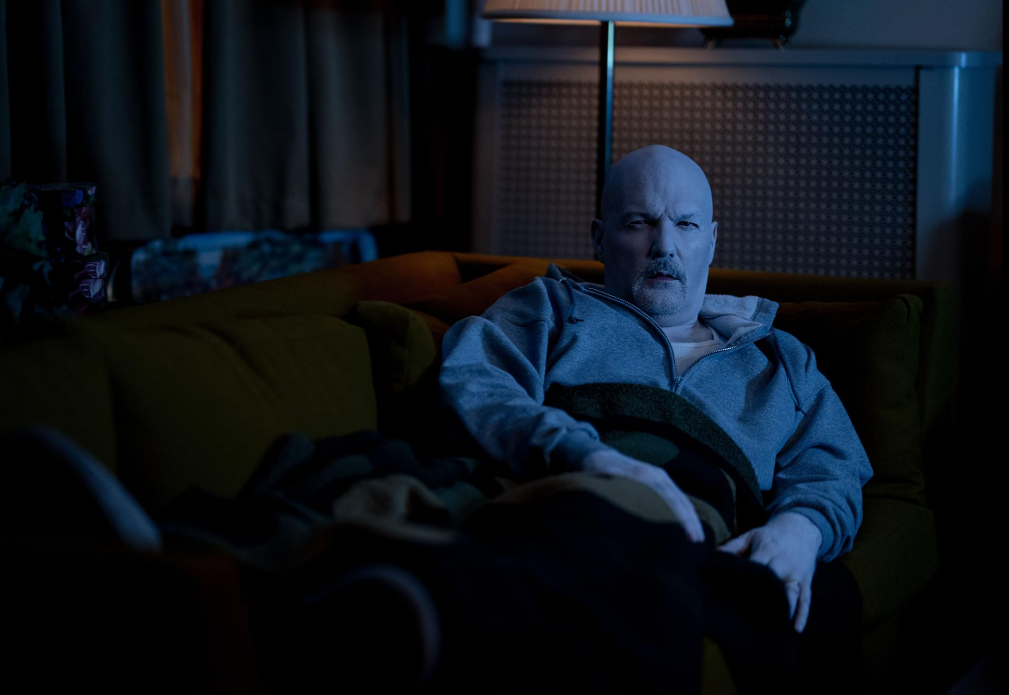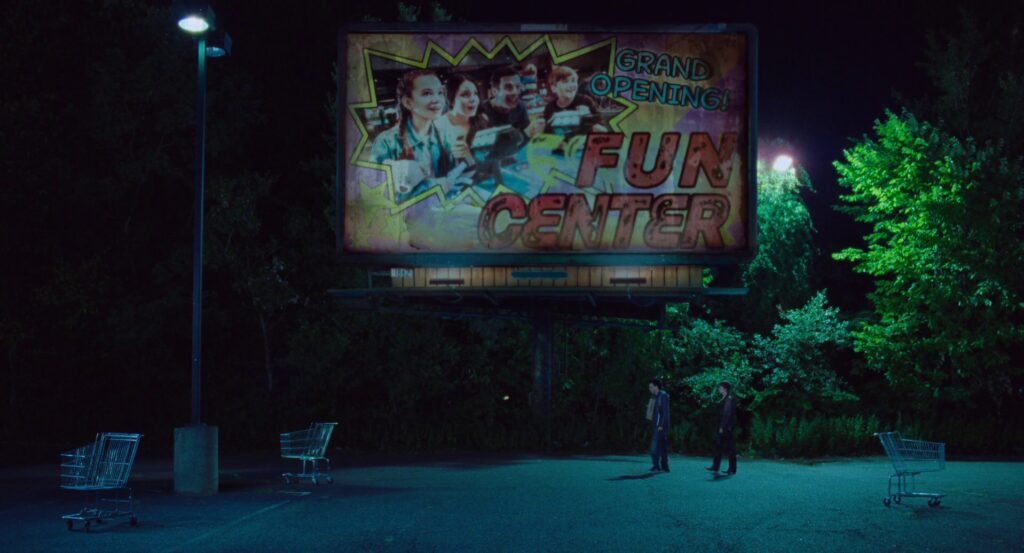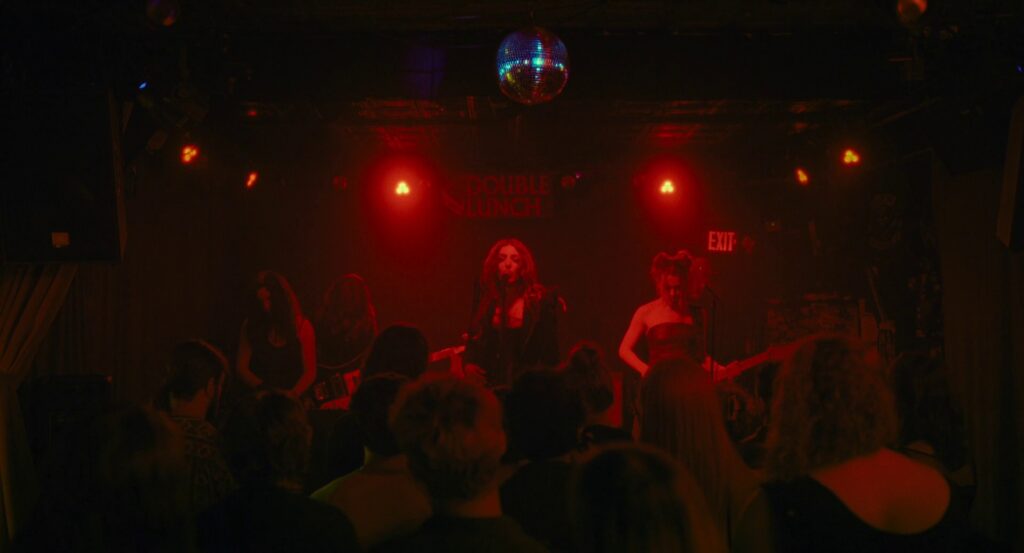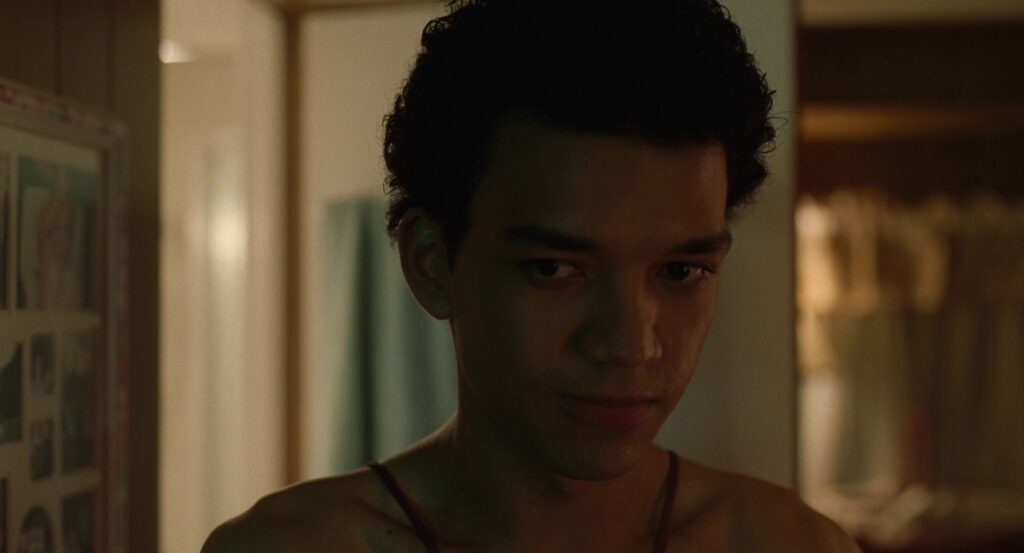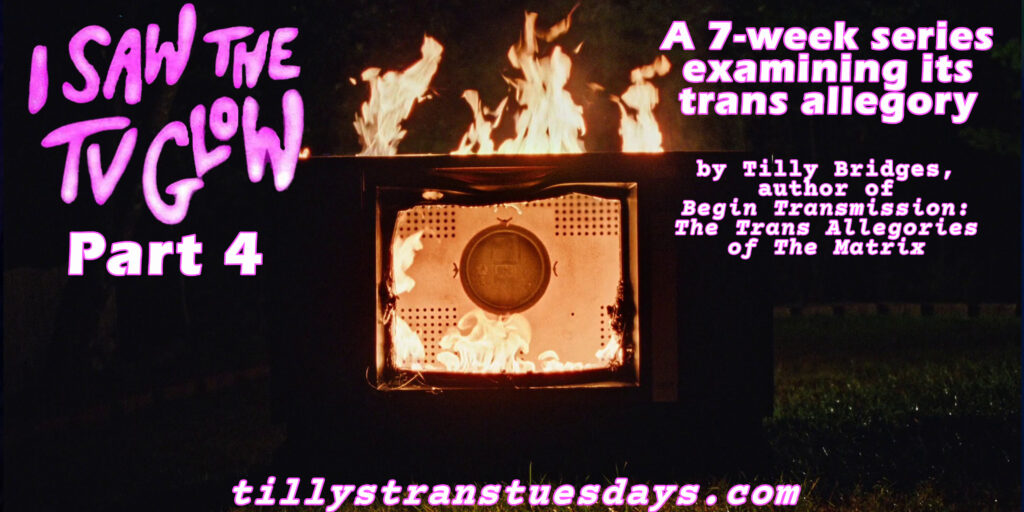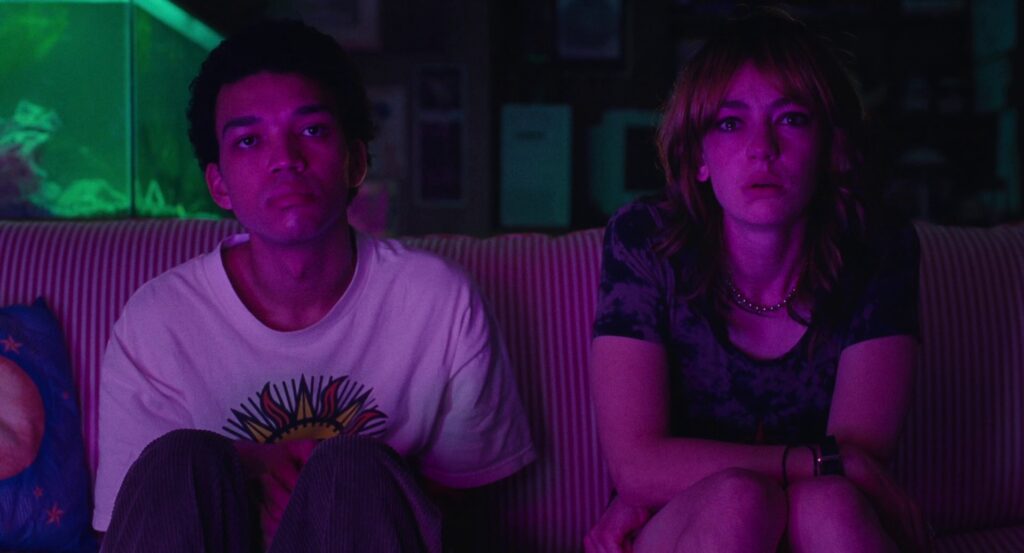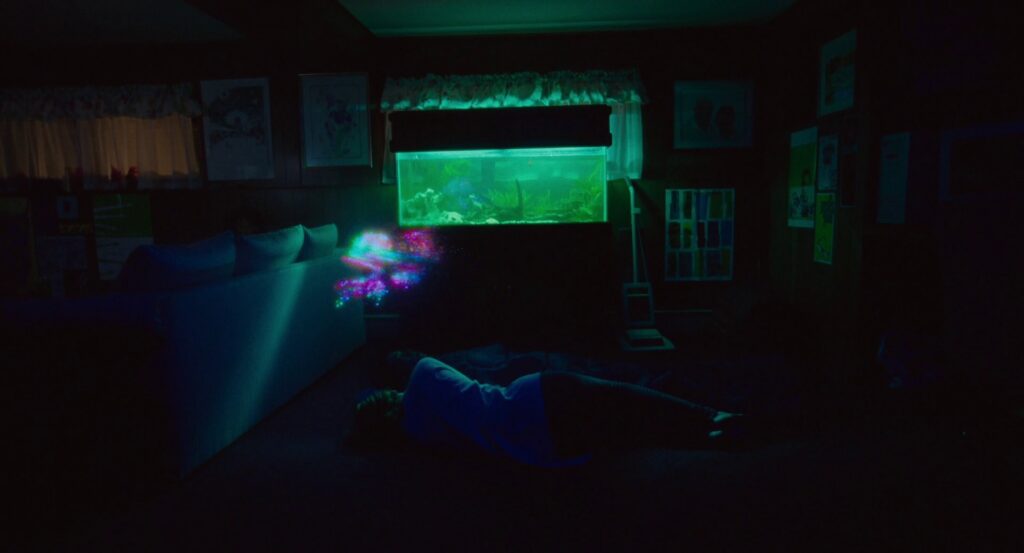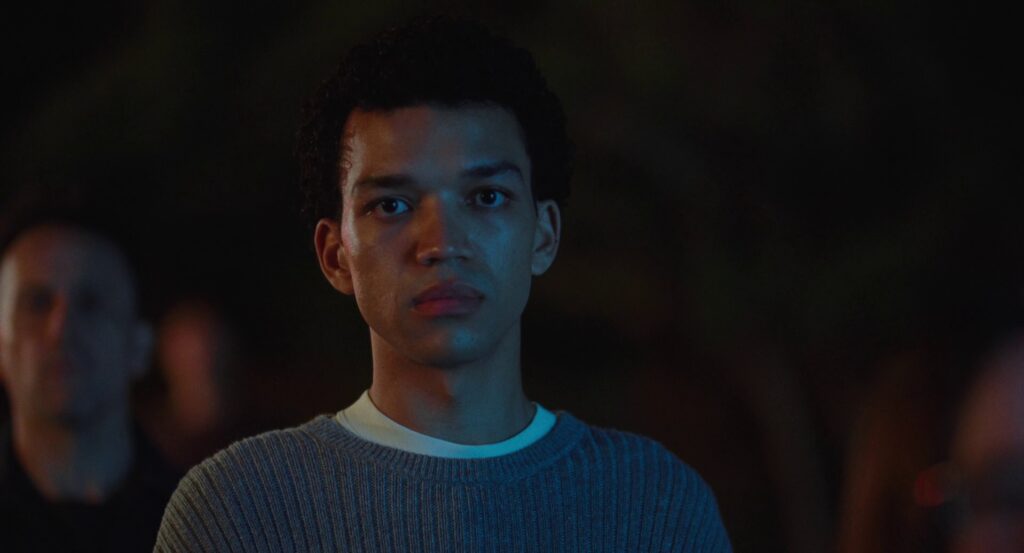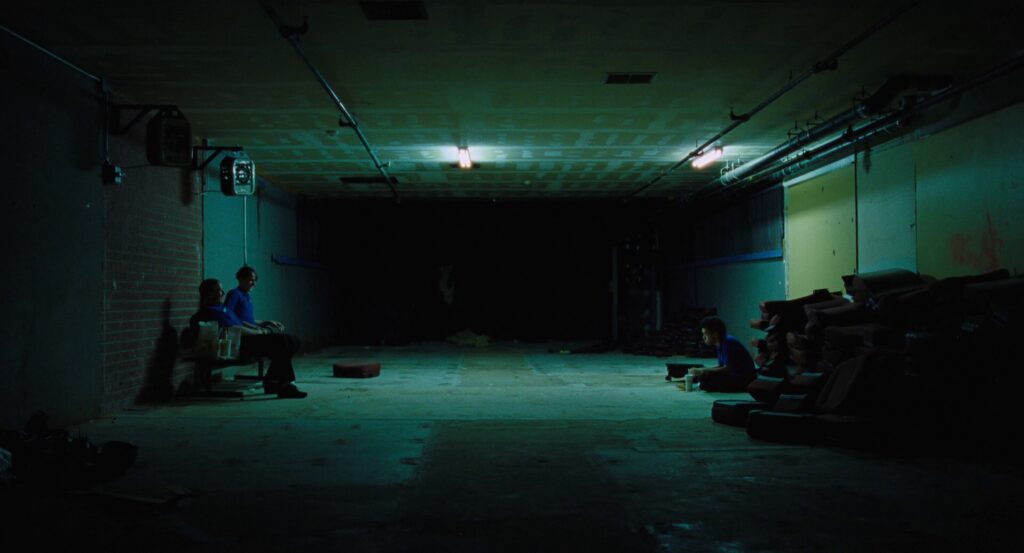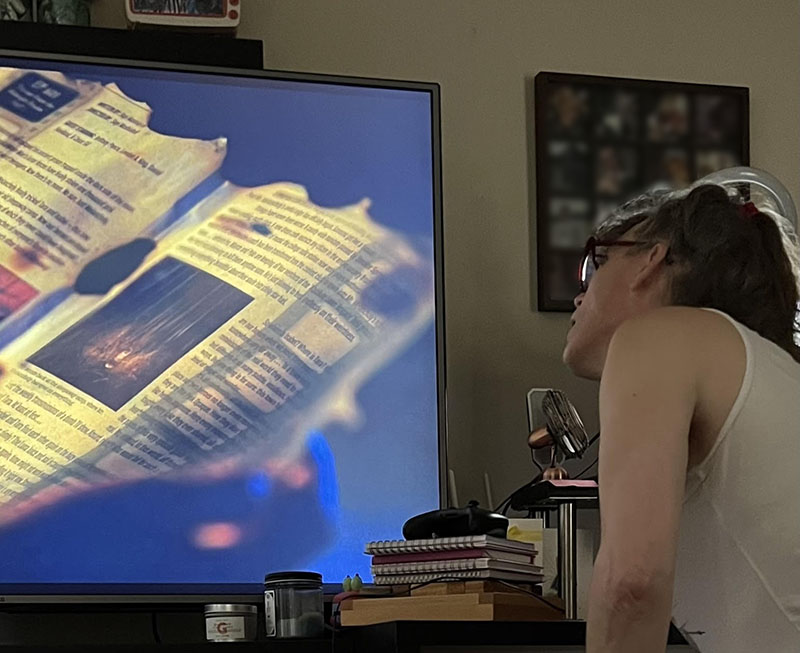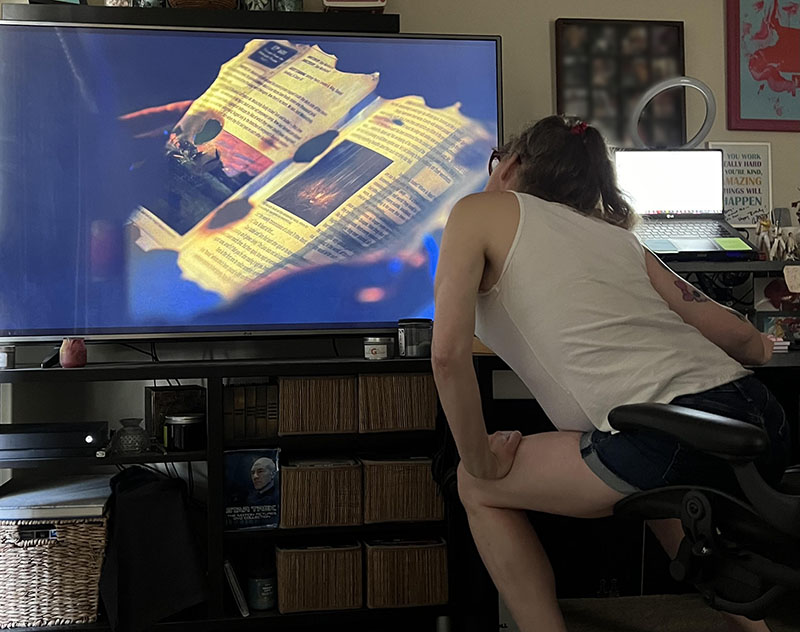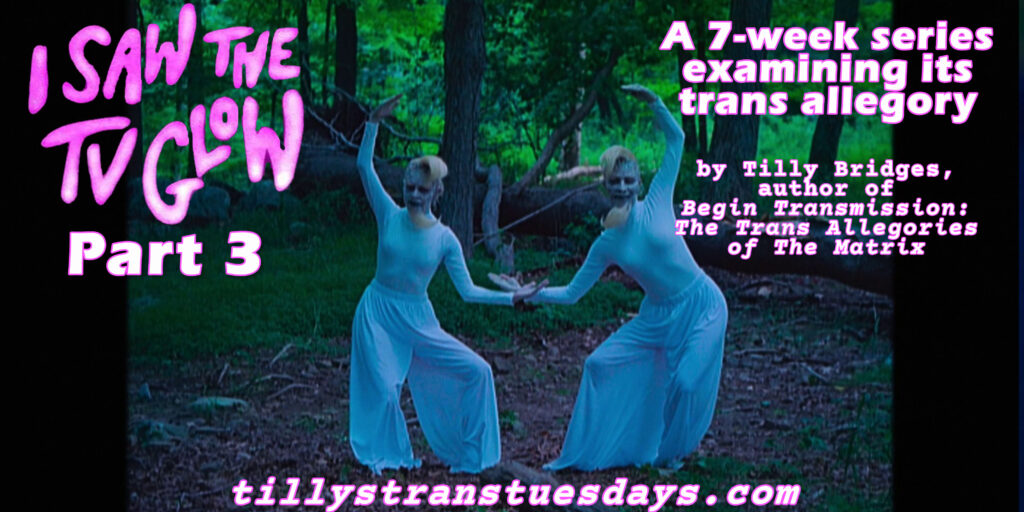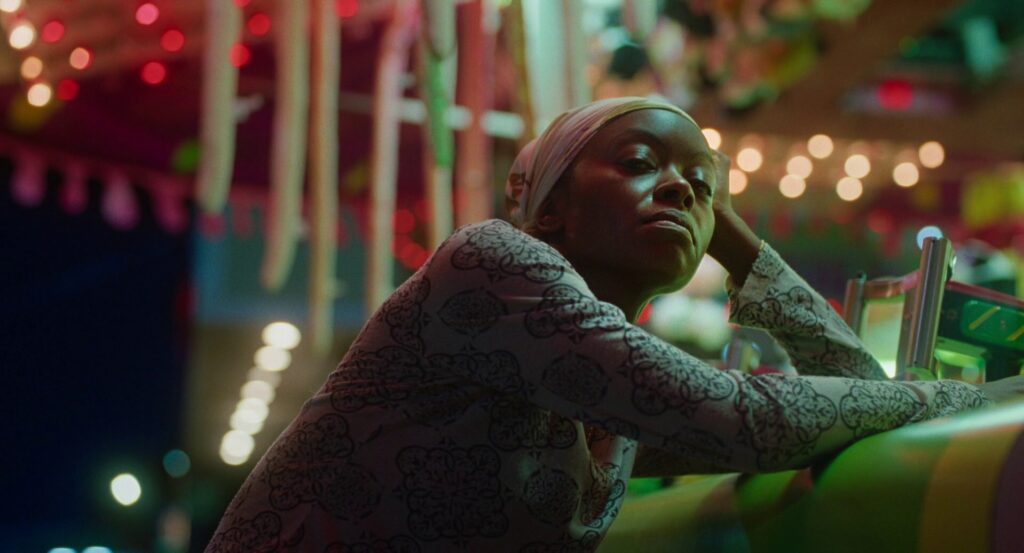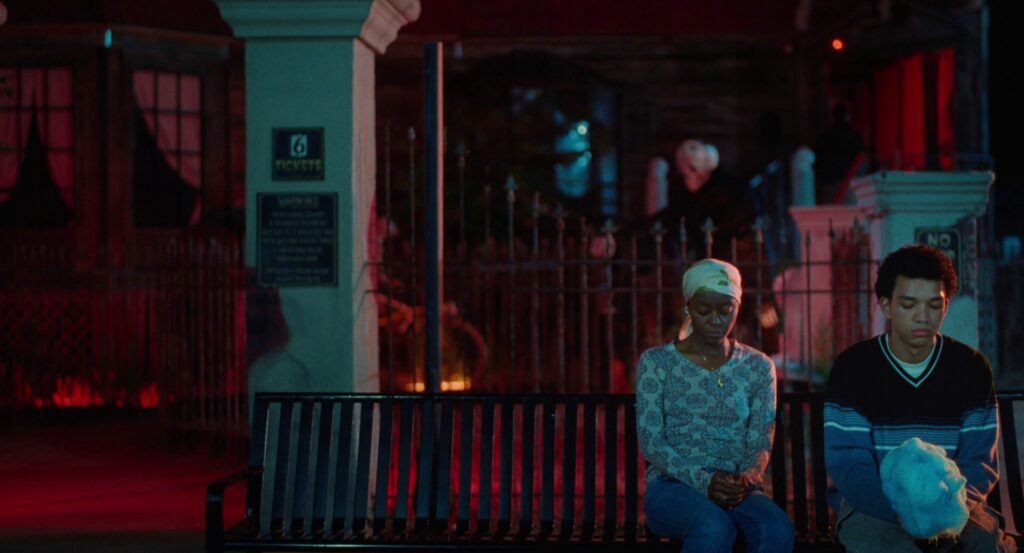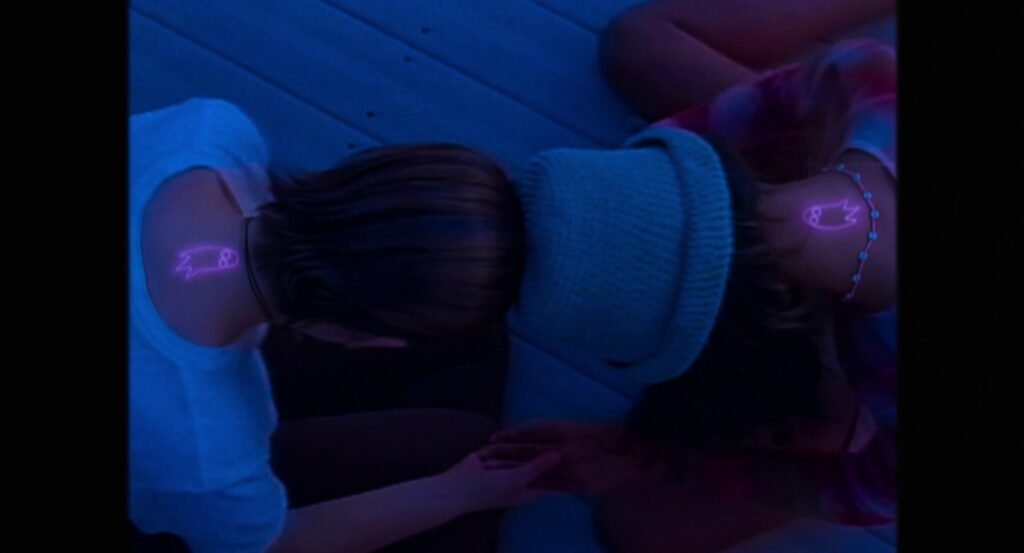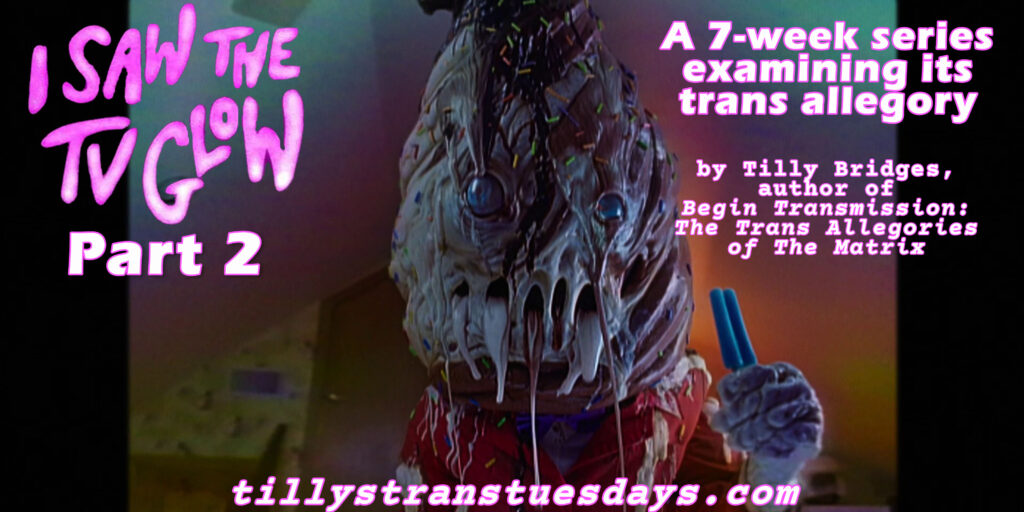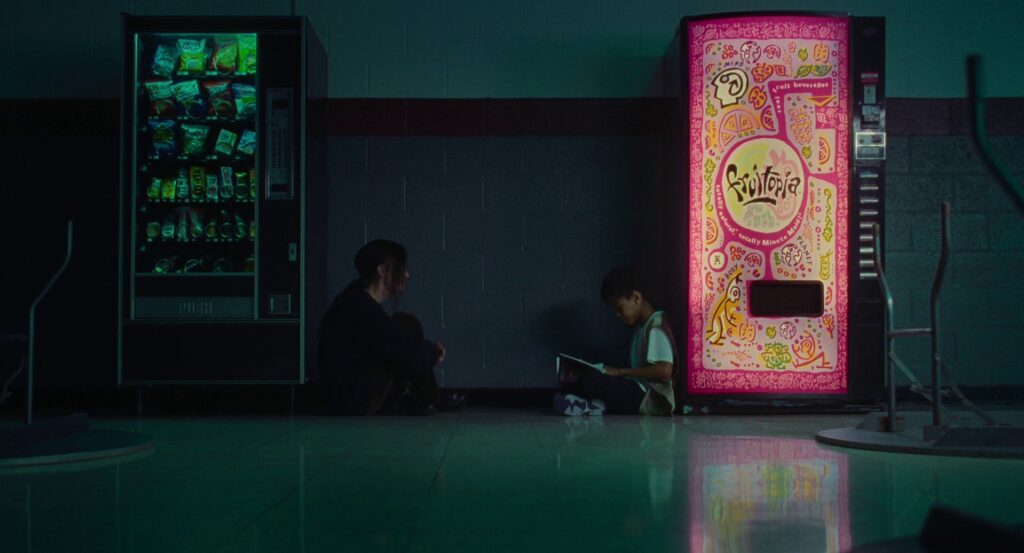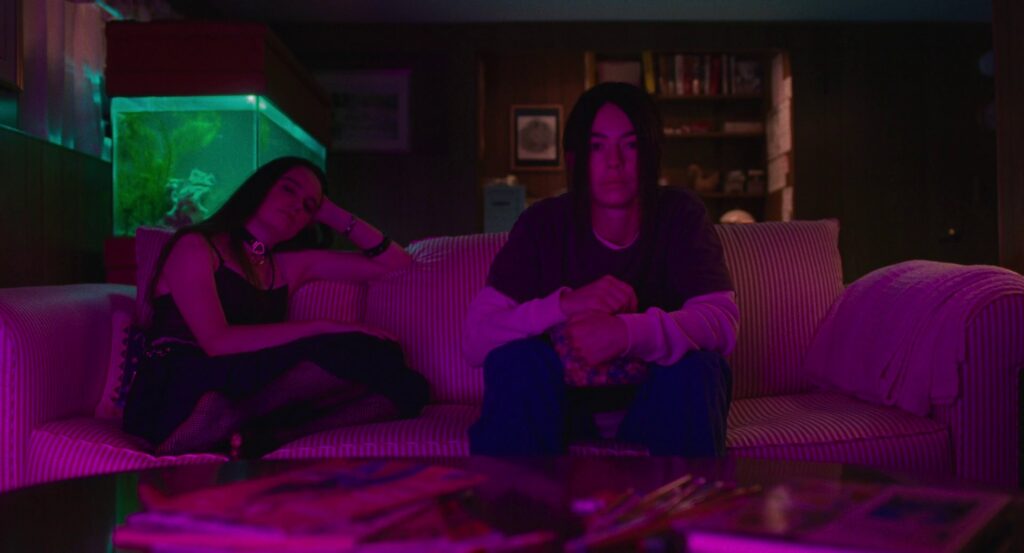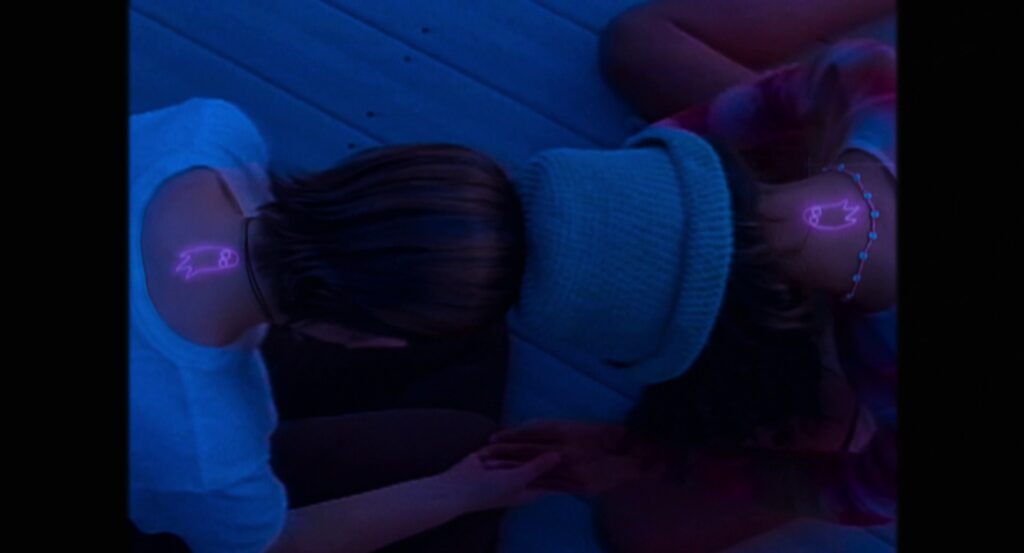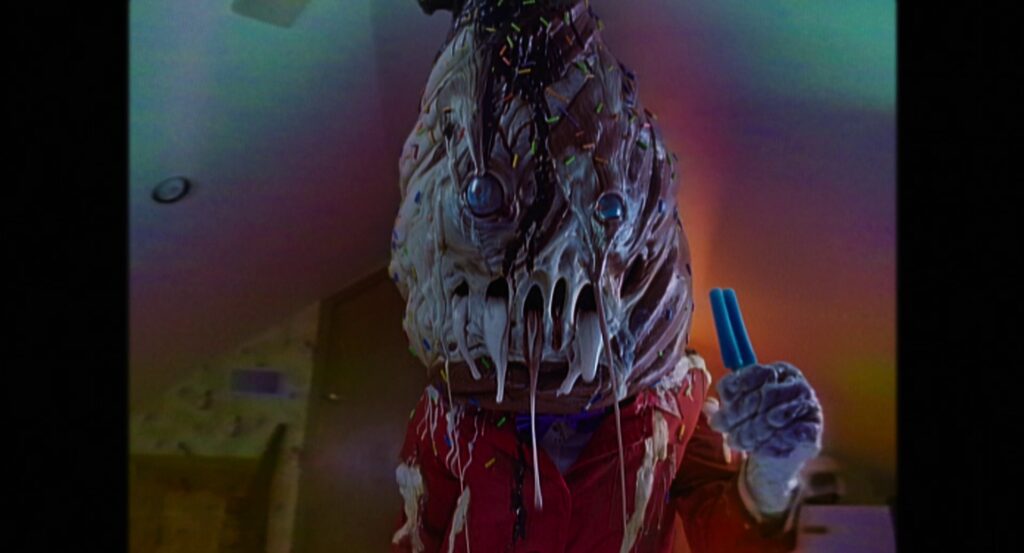TRANS REPRESENTATION IN 2024 MEDIA part 3: TV part 2
Welcome to Trans Tuesday! Here we go with TILLY’S 2024 TRANS REP IN MEDIA, part 3: TV part 2! We finish our discussion on trans rep on complete seasons of tv that I saw last year, and then look at the overall numbers and see how they stack up my past two annual reports! Spoilers abound!
As we get to overall totals and comparisons this week, be sure you’ve read 2024 TRANS REP IN MEDIA, part 1: MOVIES and 2024 TRANS REP IN MEDIA, part 2: TV part 1!
My Adventures With Superman s2 – 1
In one episode there is a “Metropolis’ Most Eligible” contest, but note it doesn’t say “bachelor” or “bachelorette!” And one of the finalists is non-binary and has they/them pronouns! Even though they have no lines, it was nice to see.

Only Murders in the Building s4 – 0
Okay, this one got rough, which is really sad because this was my warm comfort show. This was the worst offender on trans jokes that I saw all year. Past seasons weren’t like this! Did something change behind the scenes and some transphobe got more power or something? I’m so baffled.
This season there are a set of sisters called the Brothers Sisters, which is supposed to be a joke, but why is that funny? Because they’re called brothers when they’re sisters, right? Which feels half a step from a misgendering joke. They also both kind of have deep voices. They make a point that one is really strong, they dress weird, nobody wants to be around them, and in flashbacks to college they’re both kind of wearing suit coats. And I’m just saying all of that sure is a big coincidence isn’t it? I’m counting their entire concept as a joke at our expense, and their portrayal as another joke that’s a dig at trans people.
For a while Oliver impersonates a midwestern grandma to spy on his girlfriend on Instagram, and he affects a voice for her, and they sure didn’t pick a midwestern grandpa for him to impersonate did they? More of “men acting like women is funny,” so this sweet show I adored is now up to three jokes at trans people’s expense.
Episode 5 has a very bad pronoun joke. Charles is telling a story about their mystery killer, and starts off saying “he or she” and then says “I’m just going to stick to male pronouns because it’s easier even if it’s not accurate,” which is what transphobes do to us all the time! The SAME episode has an Ace Ventura joke (with the movie mentioned by name, and if you’re not familiar that movie is HORRIBLY transphobic and makes a mockery of trans women and hits almost every bad trope about us). And the episode ALSO has a Harry Potter joke! Which is of course always awful because of its creator JK Rowling, who might be the world’s biggest transphobe and uses her billions to try and strip our rights away.
A horrid pronoun joke that’s in line with what transphobes say, an Ace Ventura reference, AND a Harry Potter joke, and all in one 22-minute episode is like a transphobic hat trick. What the fuck.
In a brief scene Paul Rudd’s character, who has an outrageous fake Irish accent, calls another man “lassie” for… lulz i guess? Another misgendering joke.
I’m so, so mad and disappointed. But don’t go blaming the cast for this, they likely don’t even know that so much of the season was stealth transphobia right under the surface. You don’t see it until you see it, you know?
But this was a show that was so dear to me, and to have it repeatedly make a mockery of my existence hurts like hell.
Orphan Black: Echoes s1 – 0
The show is set in the 2050s and a teen girl is bored by a “cishet” relationship, which isn’t really anything to talk about but it’s so rare to hear “cishet” in anything I thought it worth a mention!
In the finale a bad guy calls Kristen Ritter “dude,” but I don’t know why, not a joke and he’s being a dick at the time. Is that a deliberate misgendering of a cis woman? Or just the “words for men are okay to use for everyone” thing our society does creeping in again? I don’t know.
Quantum Leap s2 – 2
Ian is still in the main cast, a nonbinary character played by nonbinary actor Mason Alexander Park, who remains fantastic.
There’s an episode with a nonbinary character named Dean, played by nonbinary actor Wilder Yari, who wears a makeshift binder and comes out to their family, and it also includes discussion of what nonbinary means and they/them pronouns (it’s set in the 1950s so the characters didn’t have that terminology, but learn it from our time-traveling lead, Ben).
This episode was written by Shakina, who wrote the super trans episode of this show back in season one, and it is again fabulously done. Be sure to check out the Trans Tuesday INTERVIEW WITH SHAKINA when I talked about it with her.
Along with Heartsopper, the Quantum Leap reboot was one of the bright spots of trans rep in television each year. It has sadly since been canceled, soooo trans rep may be taking another nosedive next year.
Resident Alien s3 – 0
There’s a lady alien with wings and feathers that keeps getting called a “bird lady” or “bird person” and she says “my noun is avian” which is just anoooooother recycled pronoun joke.

Shrinking s2 – 0
In one episode the lead character Jimmy wakes up screaming from a nightmare and someone overhears and says they heard “an old lady screaming”. Yet another “anything feminine associated with a man is funny” joke.
Also a cis woman tells another cis woman she has to “sack up” and do a thing she doesn’t want to, but it’s not a joke or anything. Just another instance of the way our society says it’s cool for women to say and do stuff men do, whereas the opposite is to be derided and laughed at.
In another episode a cis woman says to a cis man friend, “such my dick you big dumb bitch,” and it’s played for laughs. It’s a joke. Ha ha women with penises are hilarious!
I’m so tired.
In another episode a gay man and his husband are thinking about adopting a kid and someone says “Jimmy’s having a baby!” And a guy responds “You’re not even showing.” Which I think is another “men being pregnant is hilarious” joke, because if that played out exactly the same but “Jimmy” was a woman it wouldn’t be a joke, would it? There was a show last year, UPLOAD, that did a whole terrible protracted scene around the joke of a man being pregnant, ignoring the reality of trans men entirely. I talked about that in 2023 TRANS REP IN MEDIA part 3: TV part 2.
When a cis woman hands a cis man a baby and he asks what to do if it gets hungry, she says “you’ve got nipples, whip out a titty.” A MAN with BREASTS and BREASTFEEDING, so hilarious, can you even imagine. Ugh.
And here’s the thing. This show is about mental health and forgiving ourselves (and others) and is generally positive and uplifting. But look at all those stealth transphobic jokes that worked their way into it.
I should mention this show is from the same folks who made Ted Lasso… which you can also hear me talk about in the 2023 TRANS REP IN MEDIA part 3: TV part 2 report, because that show was called “the kindest show on tv” and it ALSO had a LOT of stealth transphobic jokes.
These folks keep making shows about being good and kind humans, but can’t see their own implicit transphobia and it keeps making me feel like their kindness is reserved only for cis people.
Silo s2 – 0
Is this show still a remarkable trans allegory? I believe so. Will I do another full write up on it, like THE UNINTENTIONAL TRANS ALLEGORY OF SILO Trans Tuesdays? I very well might. We shall see! There were some moments that felt allllllmost intentionally trans, as in season 1, so my gears are definitely turning.
No out trans or nonbinary people are involved with making it, however, as far as I know.
Skeleton Crew s1 – 0
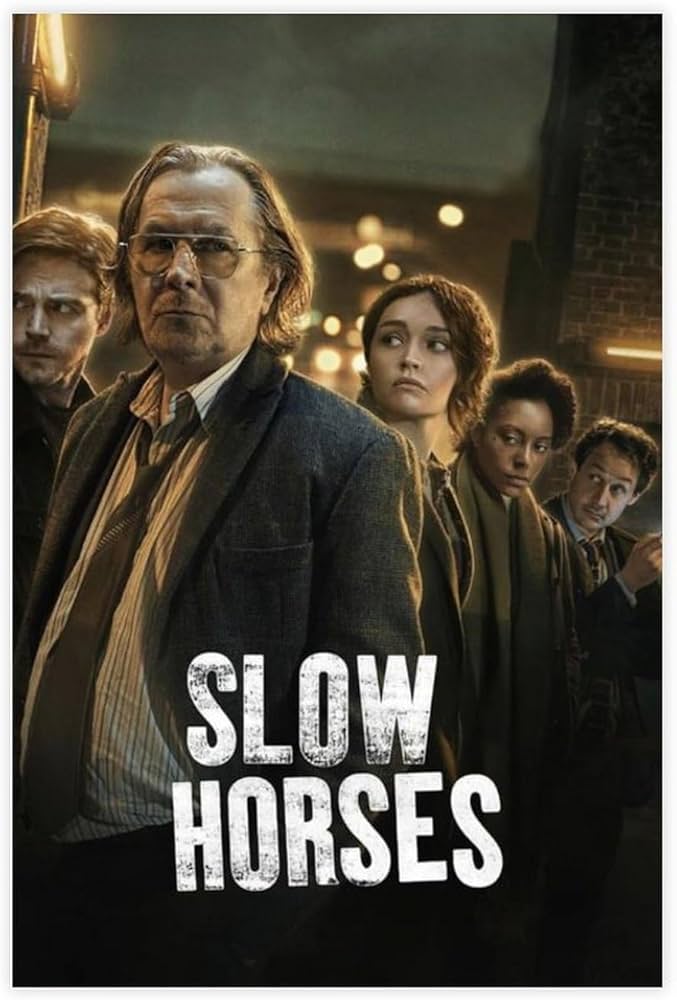
Slow Horses s1 – 0
In one episode some right wing bigots are sitting in a house with someone they abducted, and one comes in and looks at a carton of milk by the tea (yes there’s tea even for bigots, it’s a very British show). He says “oh, you got milk,” and the cranky leader dude replies with “no, he lactated it.” Another joke about lactating men, and yeah these are literal bad guys, but it wasn’t making fun of them for being ignorant and bigoted, it was a joke about how funny it would be if a man lactated (and hey, some trans men do). Very very tired of this crap.
In another episode a character is about to show off his hacking progress and says, “ladies.” There are two women and a man with him. The man speaks up and says, “…And gentleman.” And the first guy looks at him and pointedly says, “LADIES.” Misgendering for humor! Because it’s just so funny, isn’t it?
COME ON.
Slow Horses s2 – 0
The boss at MI5 is a lady who everyone calls “ma’am”. One of the enforcers at MI5 is arguing with someone under her command, and she dismisses the enforcer and the guy under her command smiles and nods at the enforcer, and calls him “ma’am.” AUGH YOU DID IT AGAIN STOP IT STOP IT.
Slow Horses s3 – 0
In one episode a man knees another in the groin, and when the victim reacts in pain the attacker says something to the effect of “that didn’t hurt, you’ve got no balls” with the implication that you’re not a man without testicles. But hey, that’s a lot of trans men! Sigh.
In another episode a cis male character says to another cis male character, “hold on to your tits” when he’s about to drive fast. These jokes are insidious and everywhere.
Slow Horses s4 – 0
But no jokes about us this time, oho! How sad is it that that is progress.
I want to add I LOVE this show. A lot.
It also makes a lot of bad gender jokes that are implicitly transphobic.
Two things can be true.
Somebody Somewhere s3 – 1
Fred Rococo is back as a main supporting character, played by trans man Murray Hill. He’s so great, as always, but he felt a bit underutilized this season.
Fred Rococo spinoff when?
Star Trek Discovery s5 – 3
Nonbinary character Adira is still a main cast member, played by nonbinary actor Blu del Barrio.
Trans man character Gray returns for a couple episodes, and is still played by trans man Ian Alexander.
Another character with “they” pronouns briefly talks to someone about drag racing. In another episode there’s an alien species that has three genders, and the third uses they/them pronouns.
This was the queerest (and least white) Star Trek show, but it’s done now and I’m sure going to miss it. It was the first to really live up to all of Trek’s inclusive ideals in terms of cast.
Star Trek Lower Decks s5 – 0
Star Trek Prodigy s2 – 1
Zero is still in the main cast and is nonbinary, but is played by a cis actor. But alllso Zero’s story this season is a trans allegory, and I can tell you it was definitely intentional because it’s what my wife Susan and I were brought in to help them with and consult on! We worked on a Star Trek! Hell yeah. 🖖
Superman and Lois s4 – 0
We Are Lady Parts s1 – 0
So this show is about an all Muslim woman punk band, which is amazing, but one of their songs is called “Voldemort under my head scarf”. Now listen, it’s not ABOUT Harry Potter shit, it’s about people who are afraid of a hijab like there’s something evil underneath it. Buuuuut they say his name like twenty times and drop Harry Potter house names too, and as a trans woman that’s just absolutely no fun to watch. Which is sad because I actually like the song!!
In the pilot a cis lady asks another cis lady “why are you such a boner-killer,” ha ha women with penises, that old hilarious chestnut.
In episode 2 the same character calls her cis lady friend “bro,” but there is a LOT of this throughout the entire series. I suspect it’s true to the culture (it’s set in the UK), but there’s also just a ton of it. Saying things to each other like “nice one, man,” or multiple times they refer to each other as “lads.”
We Are Lady Parts s2 – 1
There’s yet ANOTHER song with a Harry Potter reference. And as this show is made in and set in the UK, they have to be even more aware of JK Rowling’s transphobia, right? If you know that and you’re still including Harry Potter references, that’s pretty bad. Of course I have no way to know if they’re actually aware of Rowling’s hatred or not.
Nonbinary actor Libby Mai is in one episode playing Chelle, though the character’s gender is never mentioned.
Now here’s something weird. In episode 3 of season 2, there’s a Martina Navratilova reference, when a millennial lesbian says she had posters of her on her bedroom wall as a kid. I’m not sure the timing there even lines up right for when millennials were kids and Navratilova was popular in the world of tennis, but Navratilova is also a known transphobe now.
Given this and the repeated Harry Potter references, it’s got me feeling wary and a little bit suspect. It could all still be coincidental, but there could also be someone behind the scenes who shares some views with some famous transphobes.
What If s2 – 0
What if s3 – 0
One cis woman calls a group of three other cis women “guys.” And they’re all from alternate realities, so I guess dudes are just so good that words for them get applied to everyone in every universe. So that’s… cool.
What We Do in the Shadows s6 – 0
There’s one joke about a man with “a lady’s haircut,” ha ha funny right? C’mon c’mon, the show’s so much better than a joke that low.
There is also… a Harry Potter joke. COME ON. Like even if you don’t know about JK, it makes me wonder if you don’t know or if you do and you agree with her. Please stop referencing her, for the love of all that is good in the world.
The penultimate episode features Coney Island carnie vampires and one is a bearded lady. She has no lines but at least isn’t played for a joke. Though she does appear with a troupe of carnival sideshows, which is bad. We’re not freaks for your amusement.
That brings us to the end of my report! I mentioned way back in PART 1 of this 2024 trans rep in media report that some other folks sent in some of their own reports for inclusion, so I’m going to mention those here. Please note I have not personally seen these shows or movies, though I trust the people sending them in did their best to be accurate.
The lovely Duna sent in these:
Acapulco s3 – 0
Bodkin s1 – 0
Constellation s1 – 0
House of the Dragon s2 – 2
Nonbinary actor Emma D’Arcy has a lead role, though the character uses she/her pronouns.
Abigail Thorn appears in this show as well, in the season finale, playing a character that seems quite likely to continue into season 3. She plays a woman pirate that’s respected, feared, and has many wives. There is mud wrestling. (I am suddenly interested in this show). Abigail’s character is not mentioned as trans, but the show sets expectations that her character is a man so that her reveal is a surprise… and that’s not great, and kinda feeds into the “surprise” “trap” aspect a bit. But again, as I’ve not seen this myself, I can’t really comment on if it fell into or deftly avoided that trope.
A Murder at the End of the World s1 – 1
Nonbinary actor Emma Corrin stars, but plays a cis woman.
Outer Range s1 – 0
Outer Range s2 – 0
Duna said it seems like there’s some going out of the way to set up a couple transphobic lines. As an example, there’s a man named Trudy who seemingly exists just so someone can grumble “that’s a goddam woman’s name,” and then is rarely seen again. Well! That’s not great.
Palm Royale s1 – 0
The Power s1 – 2
Episode 3 introduces Sister Maria, a trans woman character played by trans actress Daniela Vega. Maria explains her coming out story and how their convent for wayward girls was formed by a group of nuns who were excommunicated from the church for standing up for justice during the AIDS epidemic. After this episode her character is still around but not featured as much.
Episode 6 reveals a character to be an intersex person who has the power. He explains that he identifies as a guy. Played by Nico Hiraga, who is not openly intersex as far as we know.
Presumed Innocent s1 – 0
Time Bandits s1 – 0
Velma s2 – 1
There’s a nonbinary character, Amber, voiced by nonbinary actor Sara Ramirez. They/them pronouns are used. There’s a scene where men and women are being separated and Amber loudly asks where they should go if they aren’t either.
There is a secret facility where one character puts people’s brains in a jar so they can figure out who they really are while they have no outside influences, then puts them back in their body. In the examples shown, clearly some of them come out of that experience happily queer. This is kinda glossed over, and Duna felt it deserved more attention! I would concur!
The Walking Dead: Daryl Dixon s1 – 0
And then I got one report from my fab friend Jenn Wallace, on X-men 97 s1 – 1
The character of Morph is nonbinary and uses they/them pronouns, and is played by genderqueer actor J. P. Karliak.
Jenn says that everyone knows the X-Men are a queer allegory, but she feels this season was an intentional trans allegory.
Okay, so where are we at with the totals?
Just for recent movies and seasons of television I, a trans woman screenwriter, saw 26 movies and 43 seasons of tv in 2024. And in our totals, we have:
23 trans or nonbinary actors
25 trans or nonbinary characters
30 jokes about trans people
And I counted four instances of bad representation, and ten good. (Keep in mind the joke total would have been much higher if I’d counted every instance of jokes about Ava’s “big hands” on Hacks).
When we add in the reports Duna and Jenn sent me, the new totals for 26 movies and 58 seasons of tv in 2024, we have
29 trans or nonbinary actors
29 trans or nonbinary characters
31 jokes about trans people
This shows representation as still not equal to the jokes made about us, even if most of those jokes were implicit. That’s terrible!
And the news is even worse, because in 2023, these were the numbers across 31 movies and 44 seasons of television, I found:
31 trans or nonbinary actors
20 trans or nonbinary characters
16 jokes about trans people
In 2022, the first year I did a trans rep report, across 22 movies and 62 seasons of television, I found:
22 trans people
15 jokes about trans people
And so what you see looking at these numbers is that actual trans people showing up, and actual trans characters in our media, hasn’t really changed, but the amount of jokes at our expense (even if implicit) has dramatically risen.
I wish I could say I was surprised, but given the propaganda war the Republicans have waged against us, and the Democratic party, as a whole, barely standing up for us if they even do at all… this is what you get.
It feels like gender norms are going back to being more rigid, “deviation” from those arbitrary, restrictive, and reductive norms is being further ridiculed and punished.
And while the trans rep numbers in what I’ve personally seen have remained somewhat steady, with the loss of Quantum Leap and Kaos (and rarities like I Saw the TV Glow and People’s Joker not happening that often), and the way trans and queer projects are routinely canceled, I fear next year’s numbers will be grim indeed. Also keep in mind that while the rep numbers were about the same, not all of that rep was good and some did active harm to us, on screen and off.
And then remember that Heartstopper alone makes up almost a quarter of all trans rep I saw last year.
Cis writers, producers, executives, publishers, and editors: YOU can help fix this. Art can change hearts and minds, and we NEED better and more trans rep across the board.
Hire us and help make it happen. We can fix this together.
I’m tech avail!
Tilly Bridges, end transmission.
tillysbridges@gmail.com
ADDENDUM 2/8/25
A reader let me know that Eva Everett Irving, in Orphan Black: Echoes, is a trans woman. The character is never mentioned as trans, and I missed her when looking up cast from so many shows.
I will add that there’s no reason her character couldn’t have been trans, tho, so why not just say in the show that she is and give us more of the representation we need? Otherwise even trans people watching, even trans women screenwriters specifically looking for trans representation, might miss it. And if we don’t know the representation is actually there, how can we feel represented?
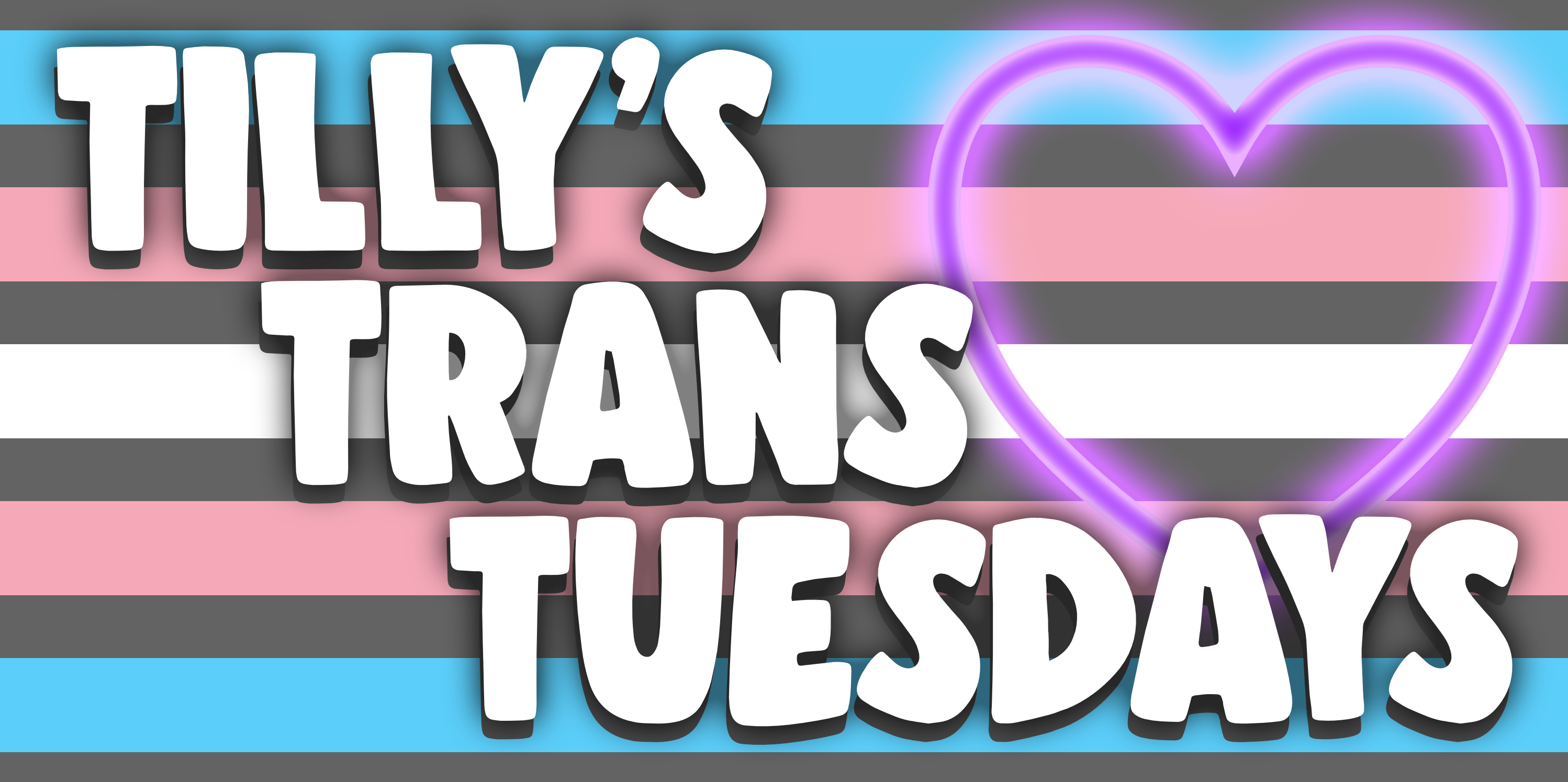
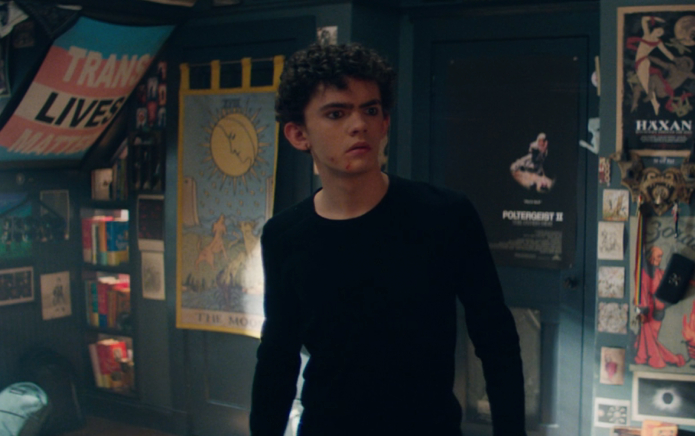




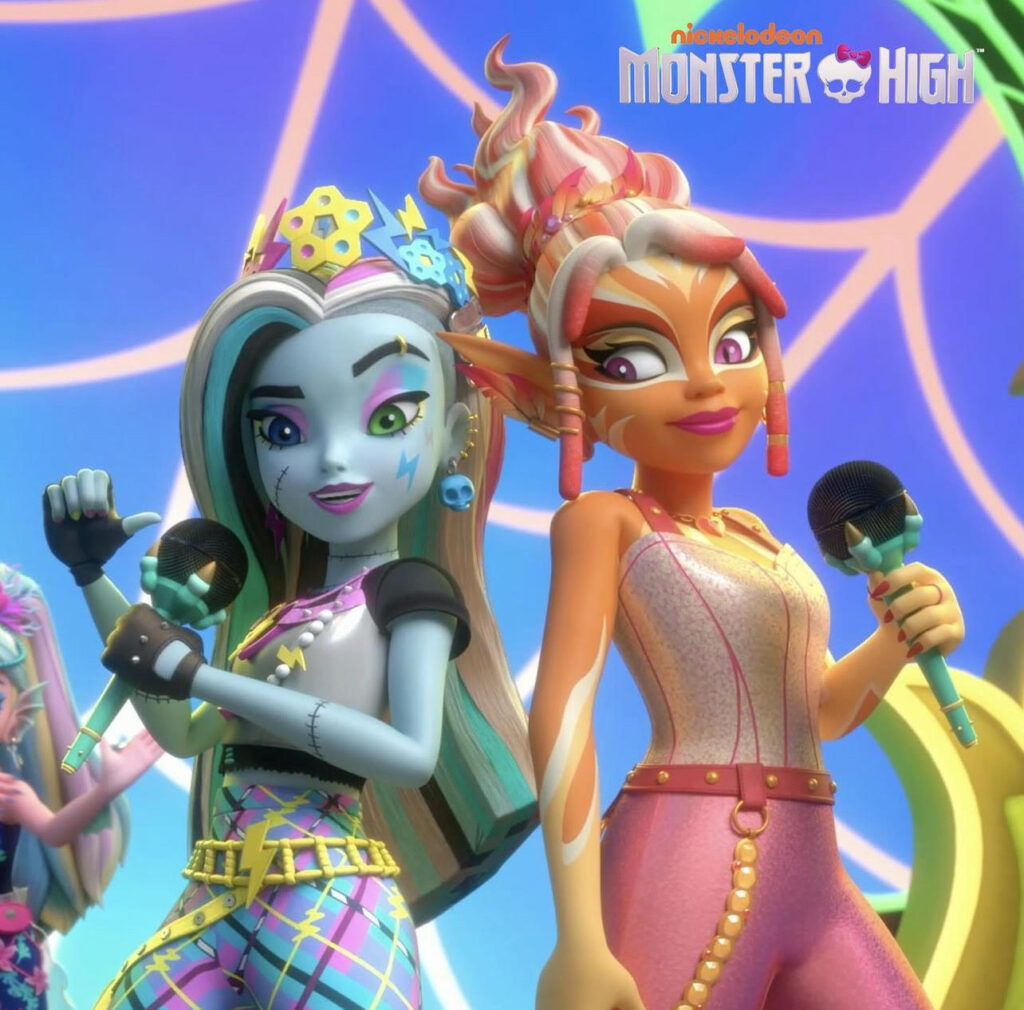

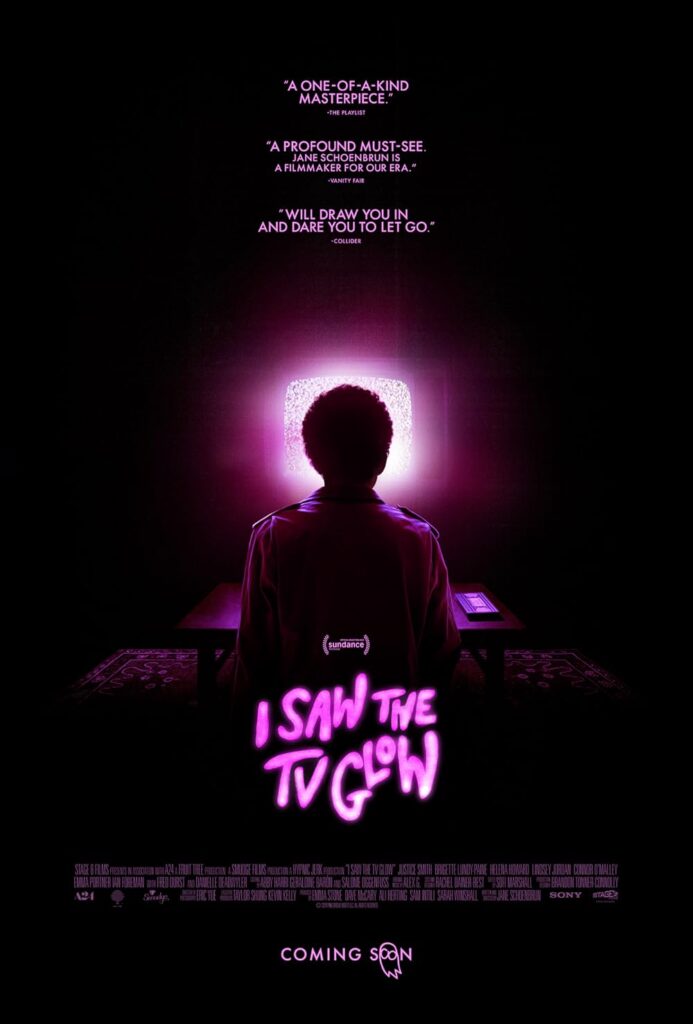
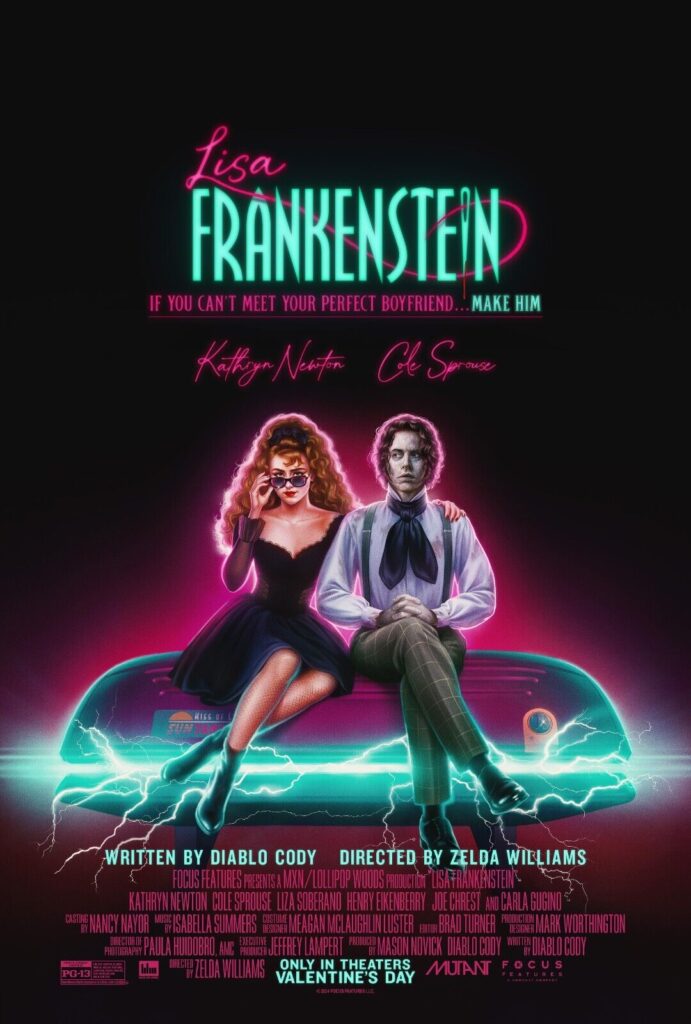




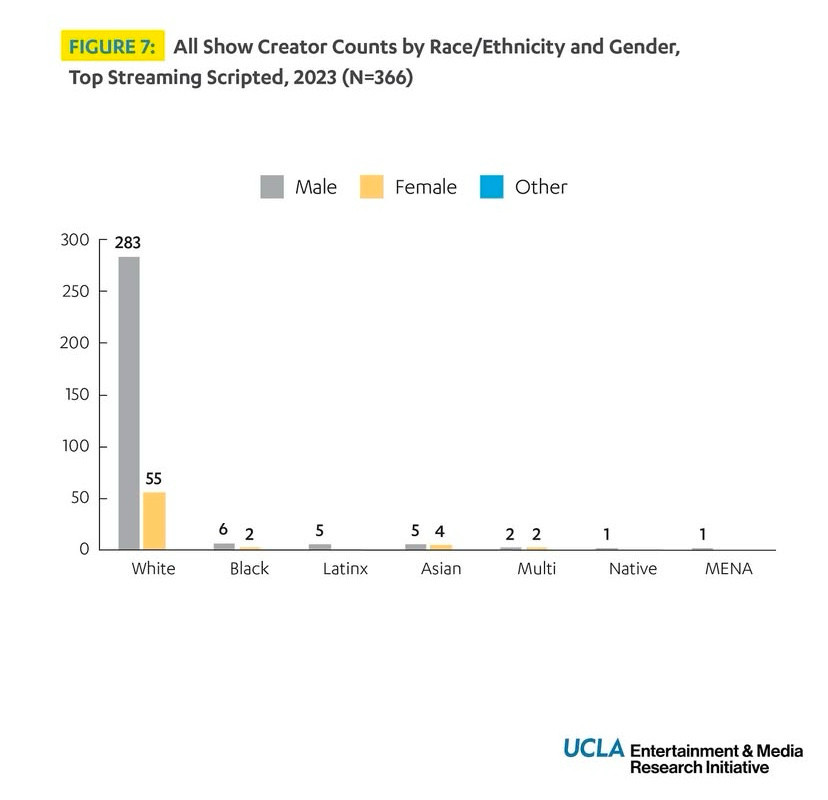

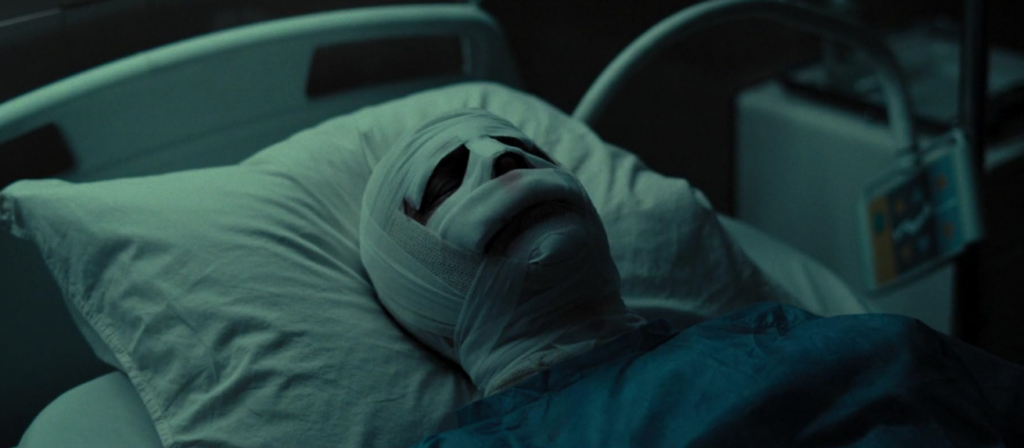


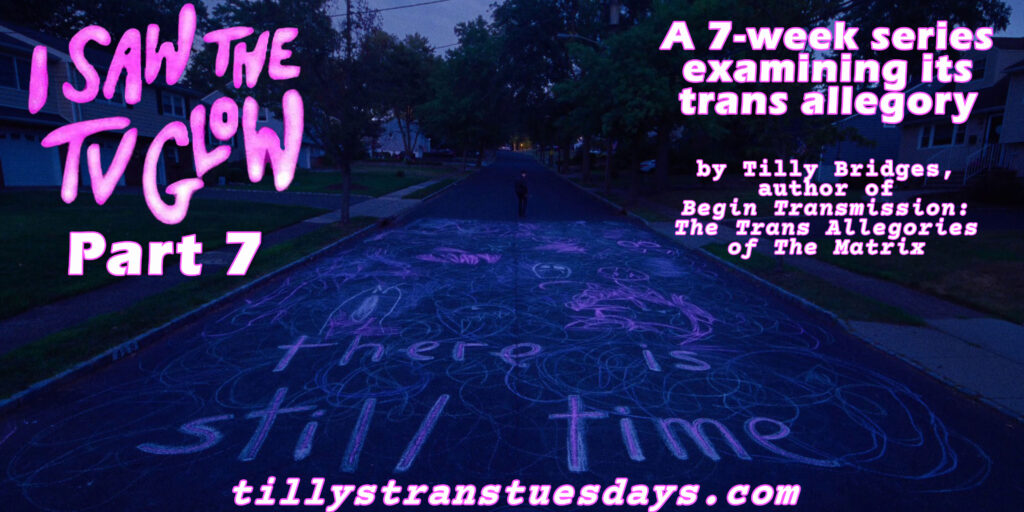

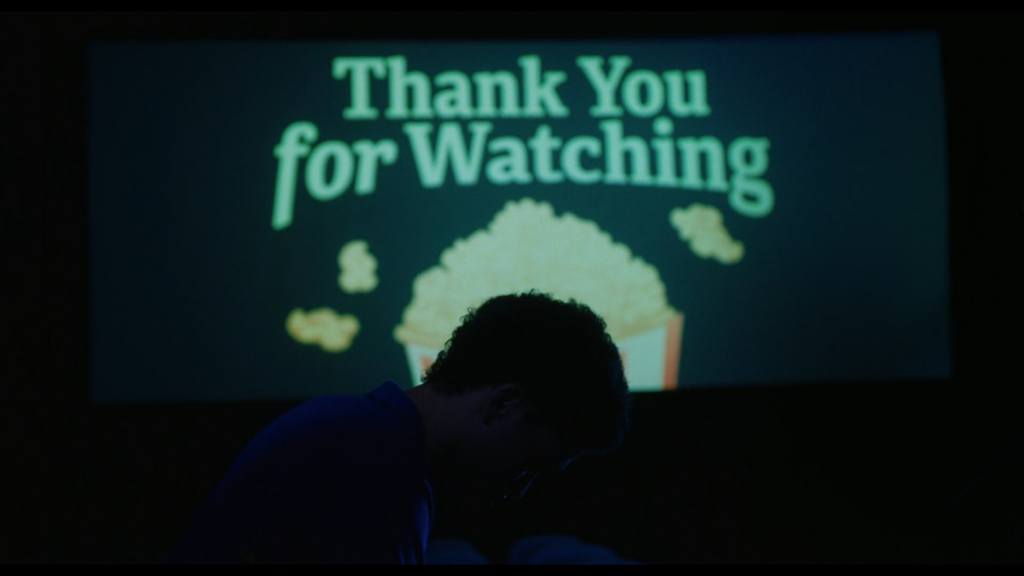
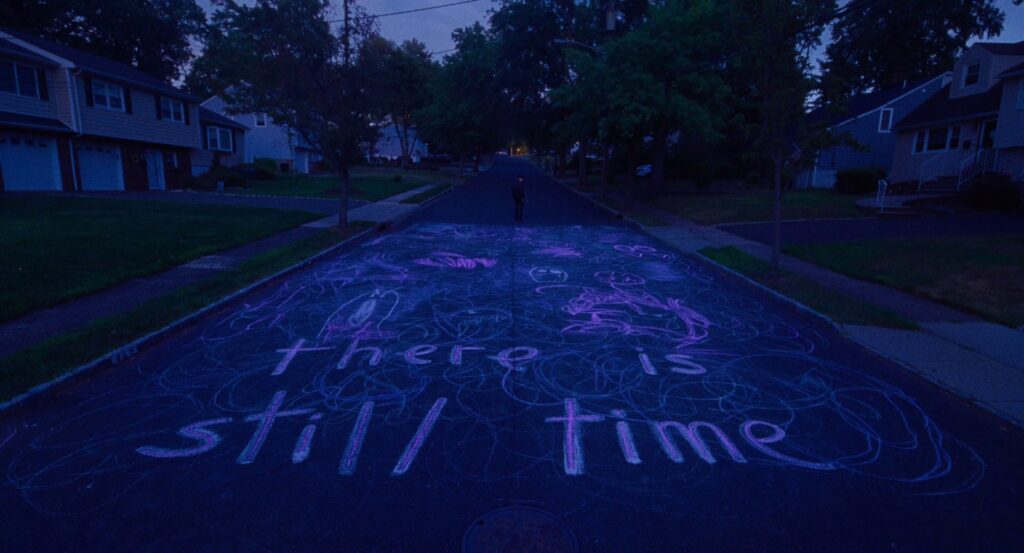

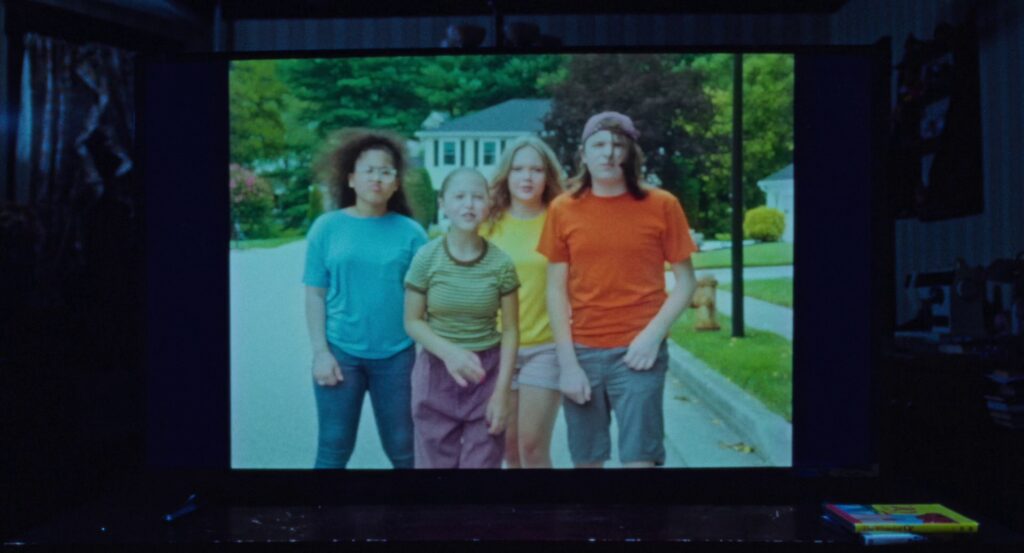


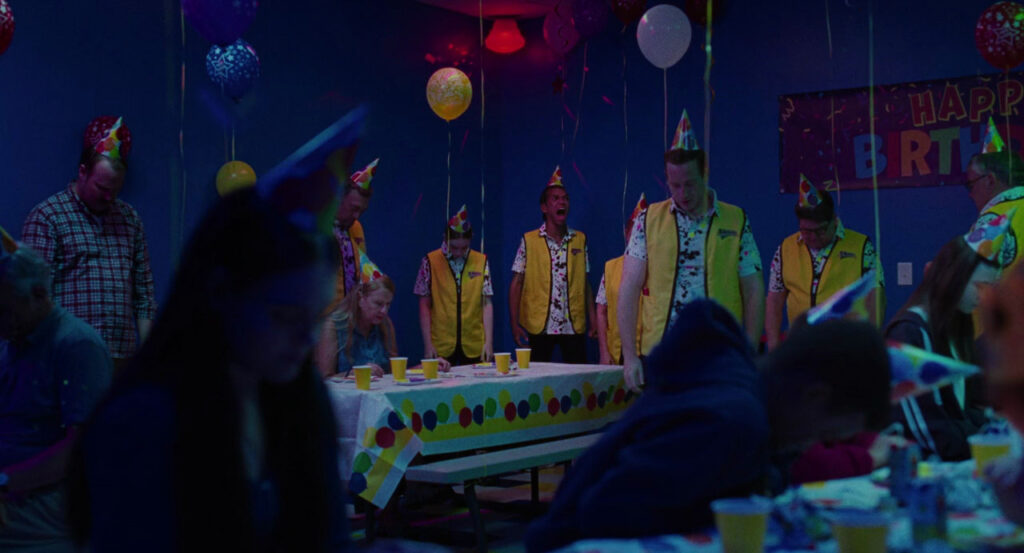

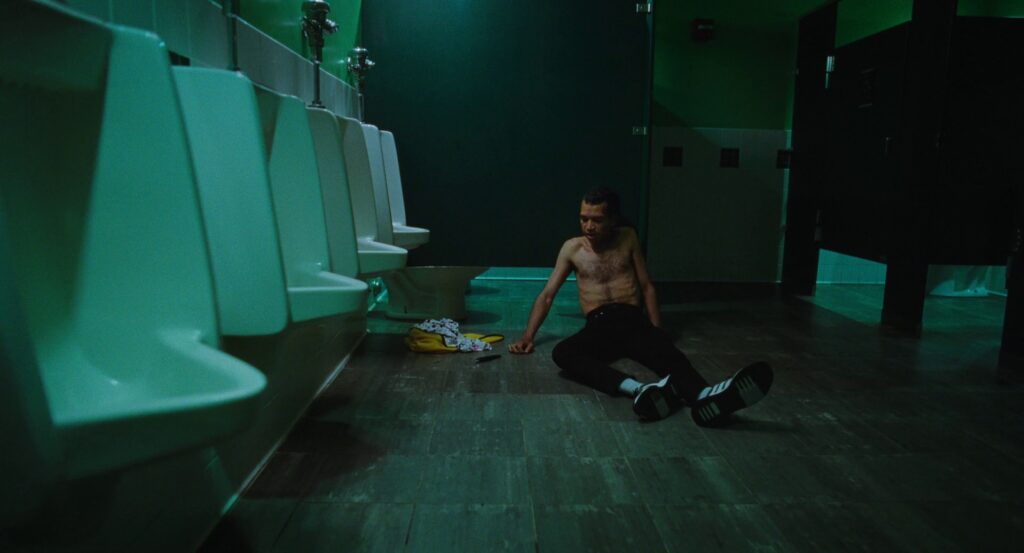
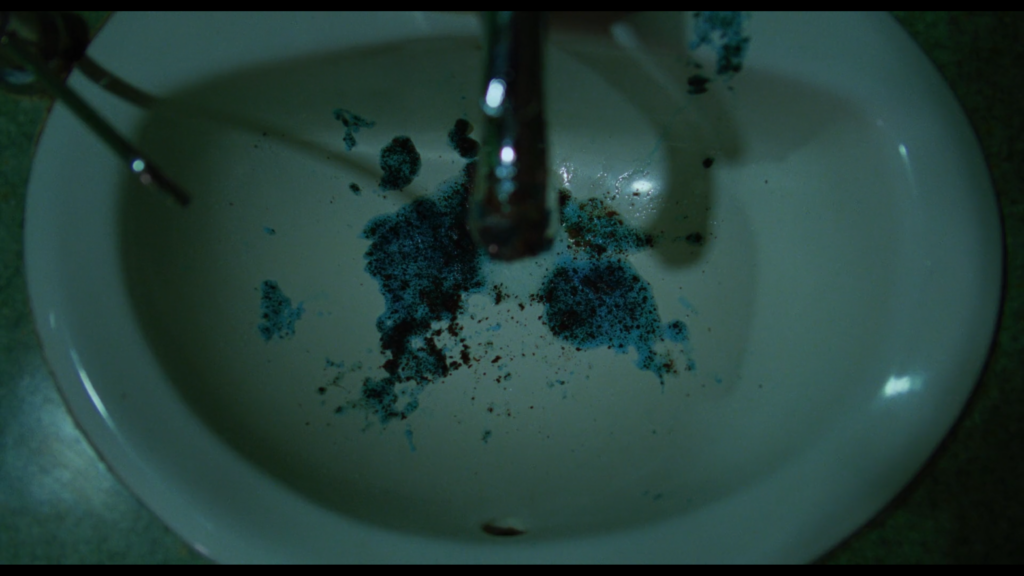
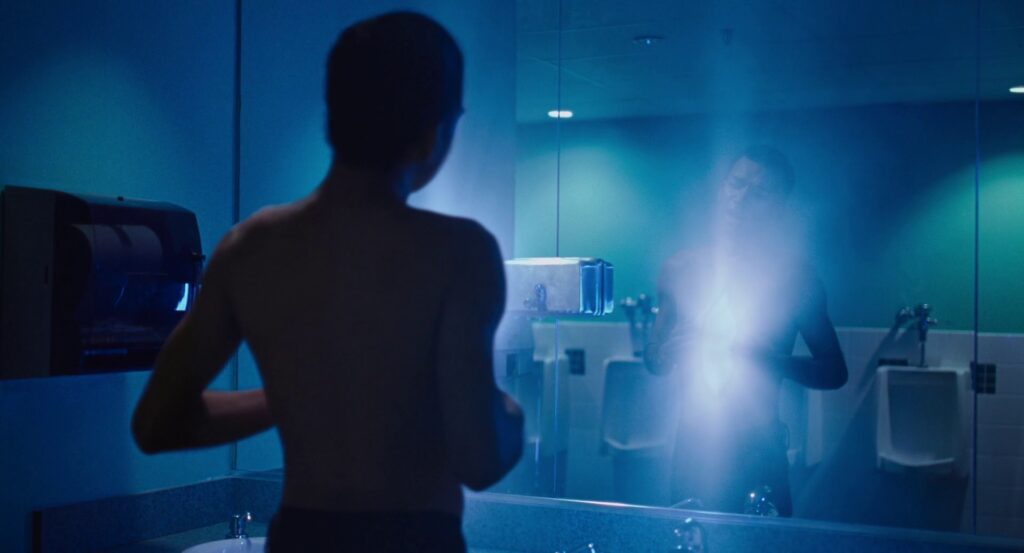

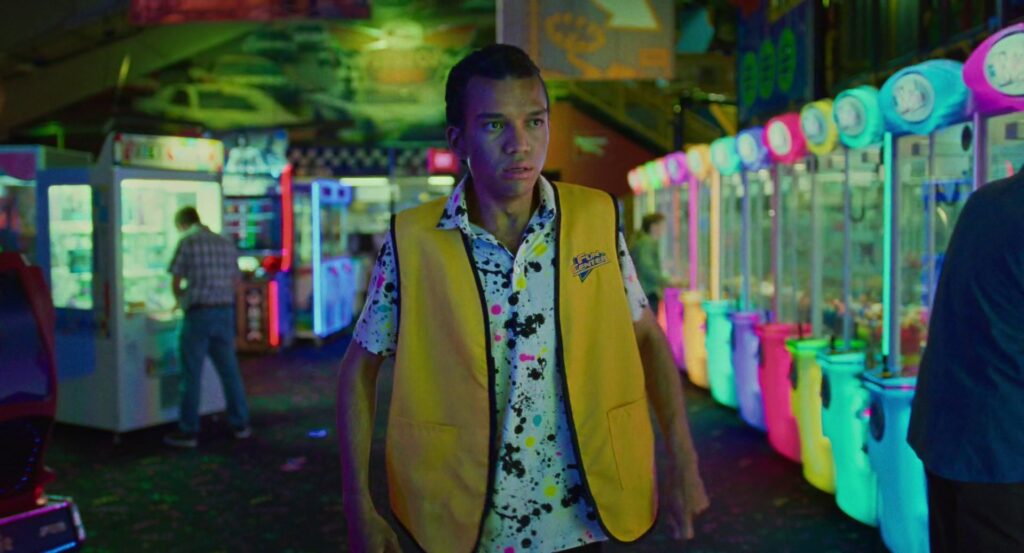

![Hi Tilly,
My name is Jasiel and I'm an English teacher in Perth, Western Australia. Tiny Australia included for reference.
[Small map of Australia showing the location of Perth]
I'm reaching out to say a HUGE thank you for your very detailed and enlightening breakdown of !
Saw The TV Glow. I am teaching this film to my Year 12 students (final year of high school here in Australia) as part of a horror and body horror genre study and your analysis has helped me so much.
Especially the colour symbolism; I spent a good deal of time trying to find a deeper meaning for green!](https://www.tillystranstuesdays.com/wp-content/uploads/2024/10/ISTVGbonus1-815x1024.jpg)
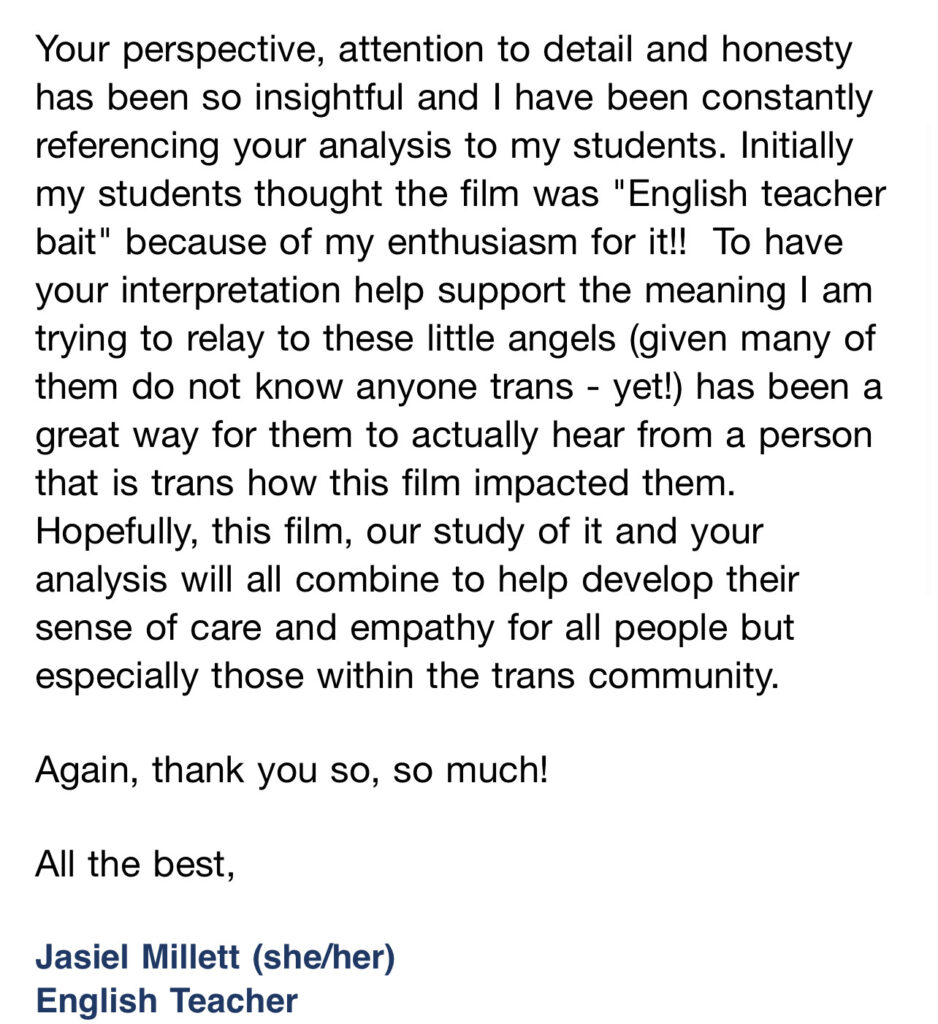
![SYMBOLISM OF COLOURS
Before we begin our second viewing, consider the way these five colours offer layered meanings; beyond the role they play in creating a stylistically aesthetic or "vibey" film.
These motifs (reoccurring
symbols) help to bring an emotion or mood to particular scenes and are used very heavily throughout the entire film.
Pink: Owen's true
identity/transness
Red: Apprehensive danger
Blue: Despair and depression
Green: Displacement/ dysphoria
Yellow: Fear
Full credit to Tilly Bridges for making these connections.
My cis-gender brain missed some of these completely.
You can find more of
Tilly's valuable breakdown of the film here [link to my i saw the tv glow write up on tillystranstuesdays.com]](https://www.tillystranstuesdays.com/wp-content/uploads/2024/10/ISTVGbonus3-1024x573.png)
